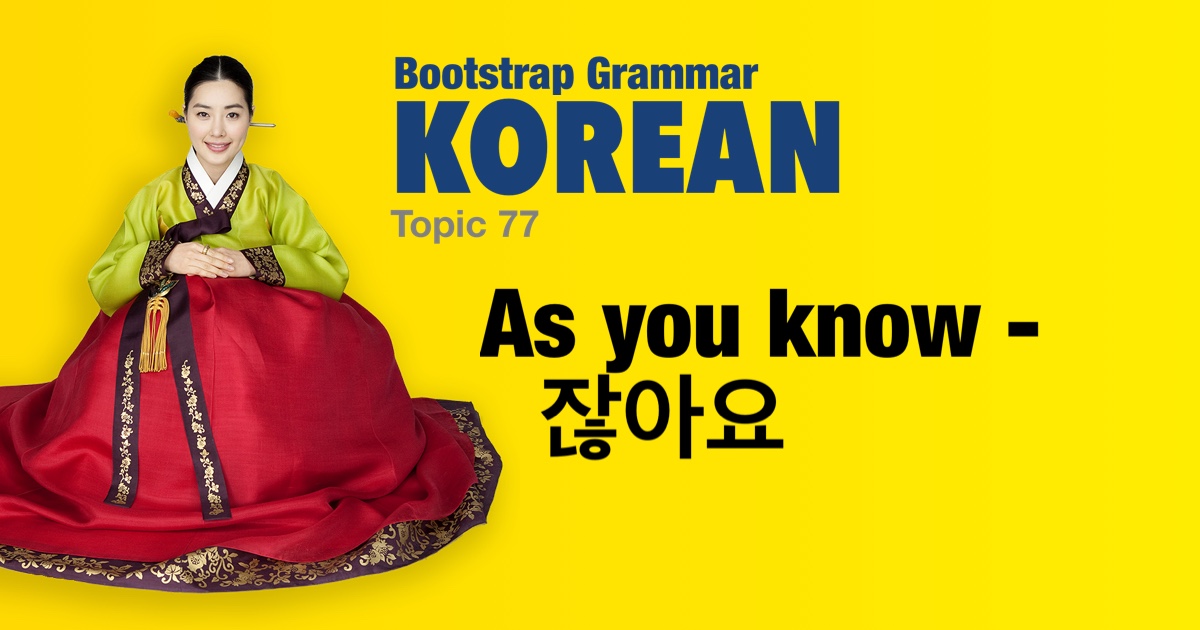Korean grammar - As you know - 잖아요 |
|||
|
|||
The pattern Final Verb form + 잖아요 is used to state or restate what should be obvious or what the listener should know. It is roughly equivalent to 'as you know' or 'as you should know' or 'as you should have known'. Depending on tone, this pattern can have the sense of 'of course'! |
| Examples: | |
|
돈이 없잖아요.
As you well know, (I) don't have any money. |
|
|
그 영화 이미 봤잖아요.
As you know, (I) already watched that movie. |
|
|
수미가 아이스크림을 엄청 좋아하잖아요.
As you know, Sumi really likes ice cream. |
|
|
나랑 제주도에 갔었잖아요.
As you know, (you) went to Jeju Island with me. |
|
|
일요일에 눈이 많이 왔었잖아요.
As you know, it snowed a lot on Sunday. |
|
|
언니가 저한테 이 책을 보냈잖아요.
As you know, (my) (male's) older sister sent me this book. |
|
|
여름에 우리는 해운대에 갈 거잖아요.
As you know, we will go to Haeundae in the summer.
|
|
|
추석에 우리 선생님에게 선물 보낼 거잖아요.
As you know, we will send a gift to our teacher on Chuseok.
|
|
|
우리 내일 시험 공부할 거잖아요.
As you know, we're going to study for the exam tomorrow. |
|
|
지난겨울에 스키를 탔었잖아요.
As you know, (I) went skiing last winter. |
|
|
어제 같이 만났잖아요.
As you know, (we) met together yesterday. |
|
|
저번에 제가 말해 줬잖아요.
As you know, I told you last time.
|
|
|
새해 다짐했잖아요.
As you know, (you) made a New Year's resolution. |
|
|
캐나다의 수도는 밴쿠버가 아니잖아요.
As you should know, the capital of Canada is not Vancouver. |
|
|
벌써 했잖아!
Of course, (I) already did it.
|
|
 |
|



